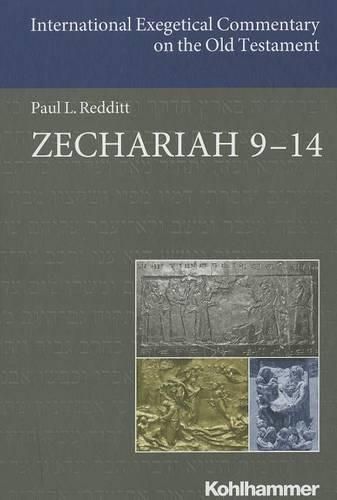Readings Newsletter
Become a Readings Member to make your shopping experience even easier.
Sign in or sign up for free!
You’re not far away from qualifying for FREE standard shipping within Australia
You’ve qualified for FREE standard shipping within Australia
The cart is loading…






It will be argued that Zechariah 9-14 consists of four collections of traditional eschatological hope (9:1-17; 10:3b-12; 12:1-4a, 5, 8-9; and 14:1-13, 14b-21). Of the collections, the first three included hopes vital during the first half of the Persian period. The fourth collection (chapter 14) seems to have arisen later than the other three (though still before the time of Nehemiah) and expressed much more pessimism. These variations were then supplemented by a collection (12:6-7; 12:10-13:6) that is pro-Judean vis-a-vis Jerusalem and by the shepherd materials, which contradict the hopes of the first two collections. This final stage probably arose after the time of Nehemiah, i. e. after the city grew strong enough to raise the ire of Judeans outside the power structure. It is plausible to conclude, therefore, that the redactor of Zechariah 9-14 assembled the four collections and revised them by means of the supplements in 12:6-7, 12:10-13:6 and the shepherd materials.
$9.00 standard shipping within Australia
FREE standard shipping within Australia for orders over $100.00
Express & International shipping calculated at checkout
It will be argued that Zechariah 9-14 consists of four collections of traditional eschatological hope (9:1-17; 10:3b-12; 12:1-4a, 5, 8-9; and 14:1-13, 14b-21). Of the collections, the first three included hopes vital during the first half of the Persian period. The fourth collection (chapter 14) seems to have arisen later than the other three (though still before the time of Nehemiah) and expressed much more pessimism. These variations were then supplemented by a collection (12:6-7; 12:10-13:6) that is pro-Judean vis-a-vis Jerusalem and by the shepherd materials, which contradict the hopes of the first two collections. This final stage probably arose after the time of Nehemiah, i. e. after the city grew strong enough to raise the ire of Judeans outside the power structure. It is plausible to conclude, therefore, that the redactor of Zechariah 9-14 assembled the four collections and revised them by means of the supplements in 12:6-7, 12:10-13:6 and the shepherd materials.